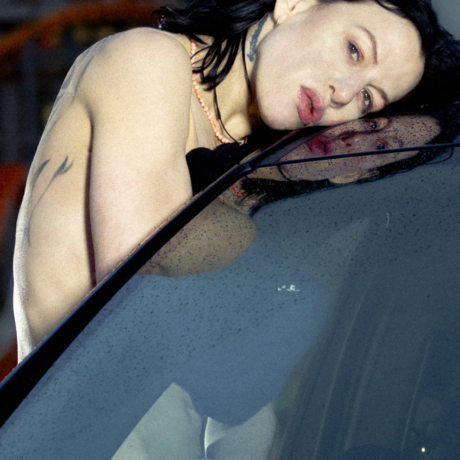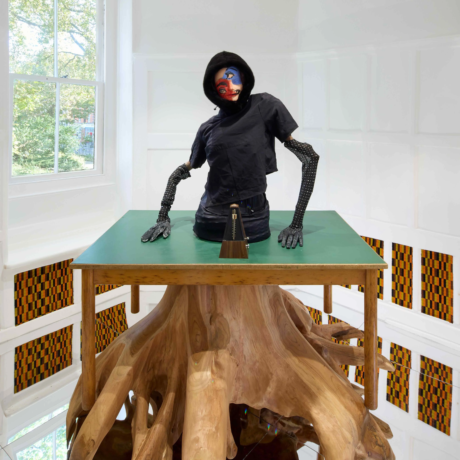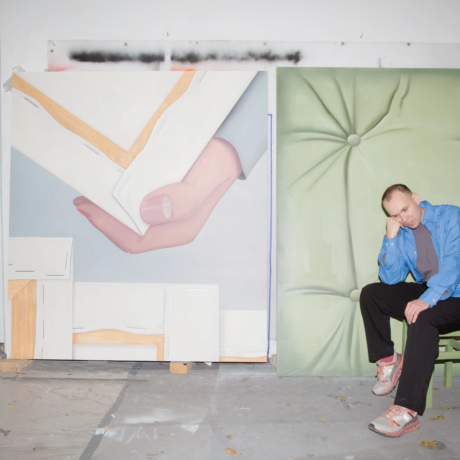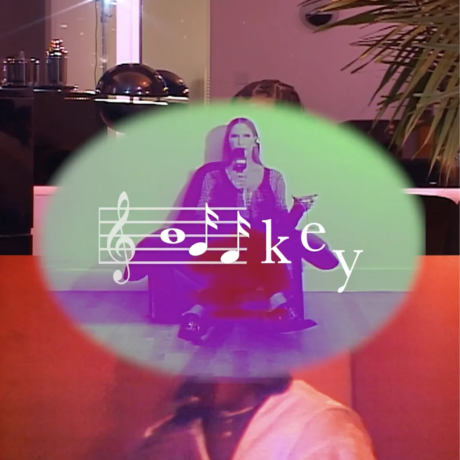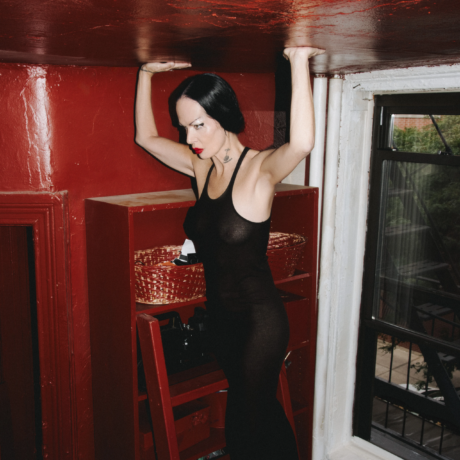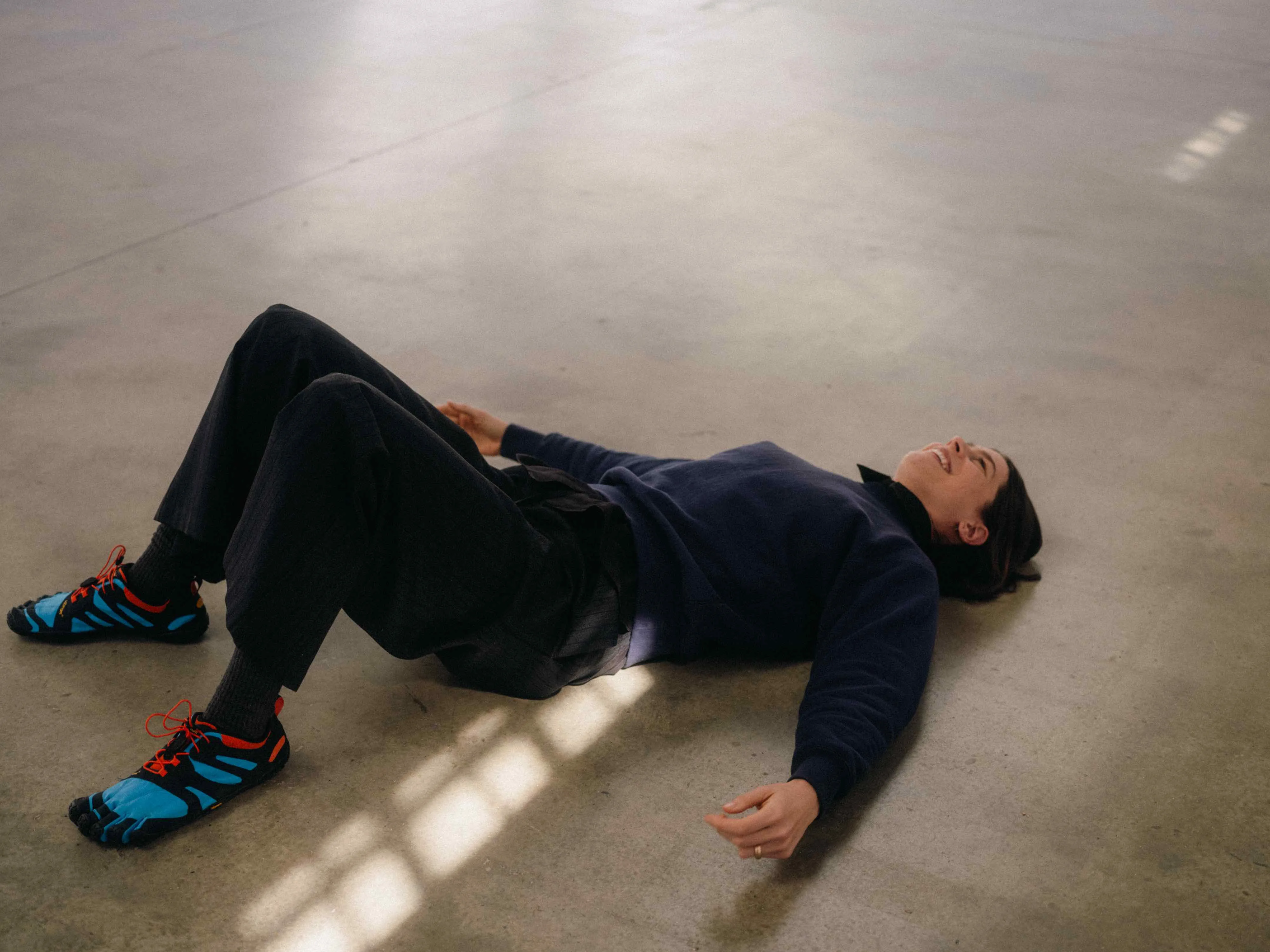
Sam Moore speaks to Nora Turato about her current solo exhibition, pool7, at the ICA, London.
At first glance, I thought that pool7, Nora Turato’s solo show at the ICA, was about language. From the fragments of this show, and Turato’s earlier work that I’d seen, I assumed that language, and the context in which she places it – the gallery space, and all of the new meanings this might imbue – would be at the heart of the show. The title of it even comes from a part of Turato’s practice that seemed to be about amassing language; creating a pool of words, phrases, fragments, and bringing them together as a kind of cultural scrapbook. But this, it turns out, isn’t the case.
“I think that language is one part of it, and it’s a flat, limiting part of it,” Turato tells me in an office on the top floor of the ICA; a window is open and a fan is humming away in the background as we adjust to the first bursts of light and heat that come with the spring weather. She says that language also exists in expression (both vocal and embodied), and that with this show, there was an attempt to “look for that less logical part of it, and less canned part of it.”

“I think that while I was doing the show, a big part of it was looking back on my work,” she says. This, after all, is the seventh time that she has created a pool series, a compilation of language and phrases that weren’t at home in any of her other pieces of work, and she goes back and forth on exactly what this looking back does, what the right word might for not only the impulse to look back, but the impact that it has. At first, she considers it as an act of “destroying” the old work, only for that term to feel imperfect: “once you start reflecting on something, it starts collapsing immediately, a certain obsession or fixation, something comes to light and doesn’t make sense anymore.”
The language brought together in pool7 seems to be considering not only the complexity of language as a material – it seems to exist as both something malleable, and systematised here – but this question of obsession and what to do with it, how to let these ideas live through the body as well as words divorced from that, printed onto A4 sheets and hung from the ICA walls. One of the fragments in the exhibition reads: been trying to pull myself out of my own ass. Turato is forthright in the evolving nature she’s had with both this exhibition, and the process more broadly: “I used to work a lot with found language, and I think something happened in the process of this pool where something shifted for me.” This shift seemed to be, rather than just a shift away from the found language, towards something more personal, embodied; Turato describes it as a looking towards language “that felt more like mine.”
This feeling comes to life in the second room of pool7 where, sitting in darkness, you can listen to the artist performing some of these fragments of language; there’s an elasticity to her style, the understanding of the voice as an instrument that’s able to challenge the ways in which we might make sense of this language if it just existed as text on the wall. Turato is animated by the way that found language, and the language that’s “hers” exist together in the show, telling me that “if I could talk to my past self, that would be an outrageous thing to say, that past self would say there’s no such thing as your language, this is bullshit.”
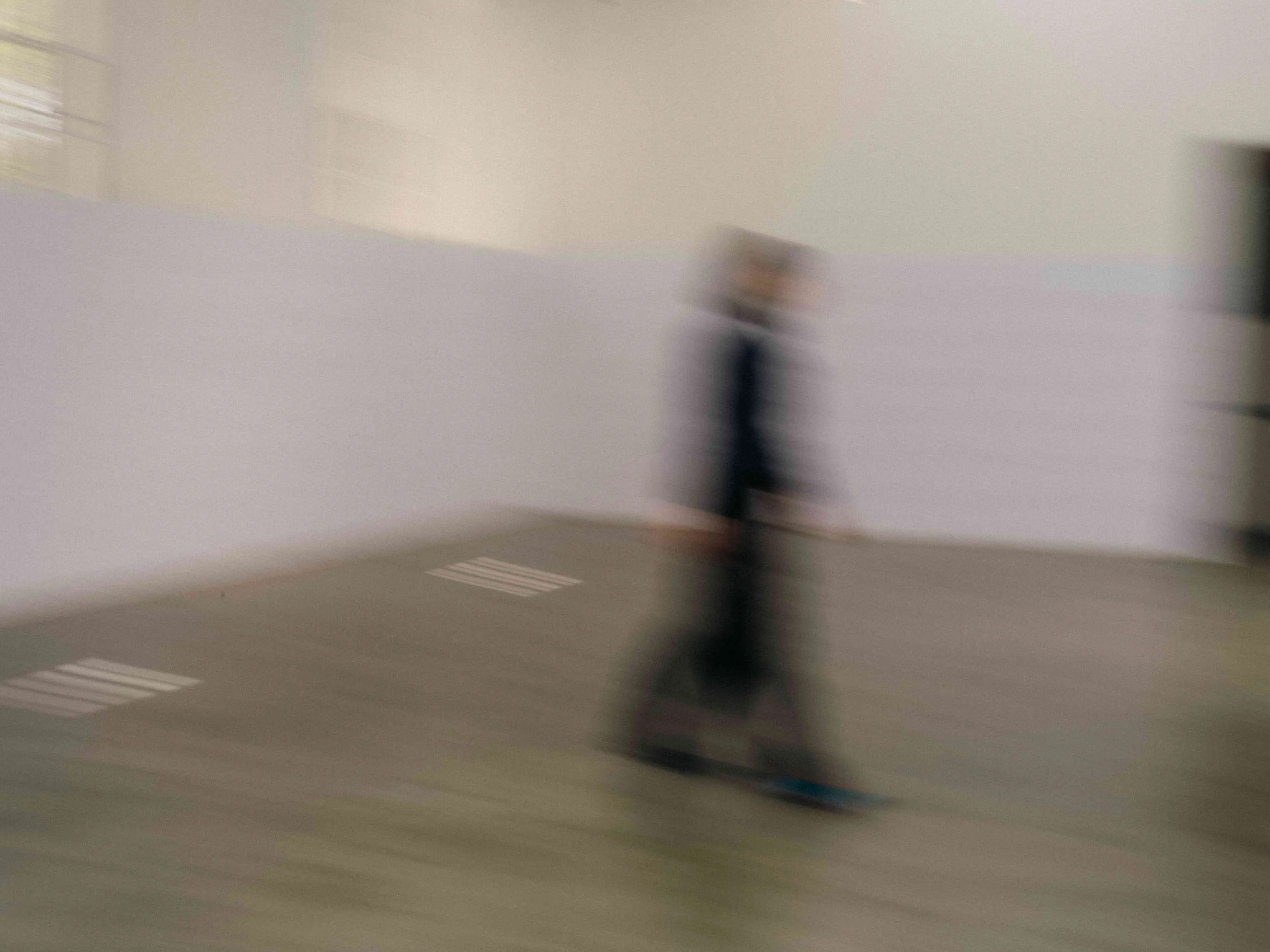
There are moments throughout our conversation, when both Turato and I come up against the limits of what language can describe; the limits, maybe, of a found language. Turato mentions this work existing through the body, and when I ask her to expand on it, she says that the problem with trying to use language to describe embodiment, that it’s “more understood once it’s experienced.” We decide that it’s like trying to talk about one thing using the language of another, and Turato says that it’s less about how this embodiment feels generically, and more about how it feels for her specifically. “It feels like the last few years were the process of me coming into my body. I feel like the body is a sort of lens through which reality is perceived.” She laughs, admitting that it’s still difficult to explain; but to me it seems that this difficulty could be the point, with pool7 not just being about this scrapbook of language, but a way of trying to make sense of its limits, and what happens when language tries and fails to explain itself. But still, this doesn’t stop her from conjuring a rich image through which to try and define the show: “If I had to describe the show and the feeling of making the show in one metaphoric image, it’s like taking your hand and dipping it into shit.”
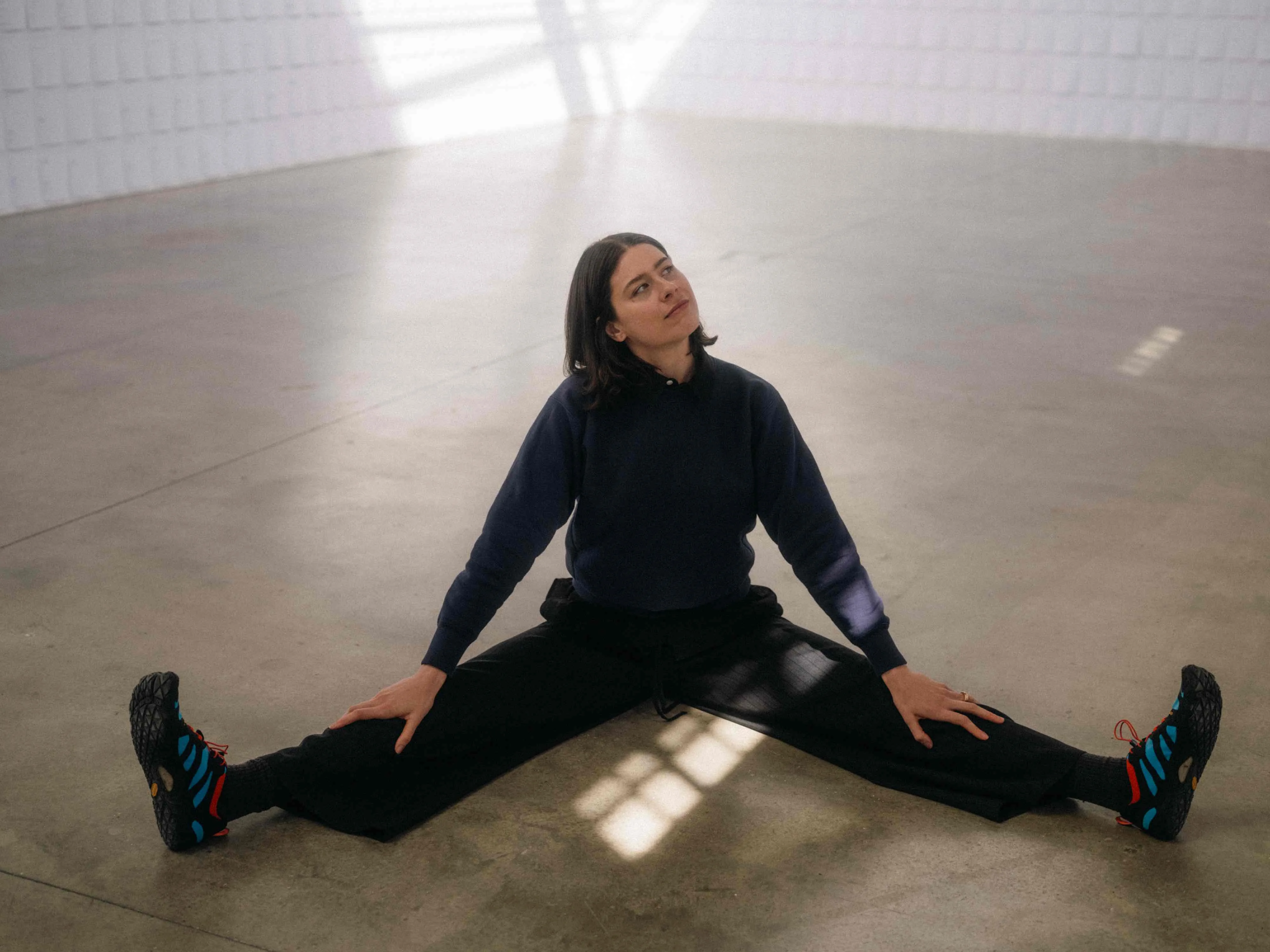
For Turato, the “shit” that this show plunges its hand into is the flesh-and-blood embodiment of language; reclaiming it as not just something that we listen to, or find online, but use. “I think, what’s happening now is that people are consuming language and not using language. How many people spend their days listening to podcasts, or reading articles? But there’s no expression there.” There’s an imbalance here, between the language that comes in and the language that comes out of its consumption, as if we’re slowly losing the ability to speak to and through ourselves, instead becoming a collection of found, digital fragments. Torato tells me about the feeling of having a conversation with someone, and knowing that something she hears is from an article or a tweet, some found piece of digital language; this idea that language is no longer our own. There are times throughout our conversation when she second guesses the words that she uses, and is unsure about if the feelings or ideas have been matched up with the right words. But these hesitations seem just as important as the fully-formed answers, as pool7 shows us an artist and her art, finding their way through language in real time.
Words by Sam Moore
